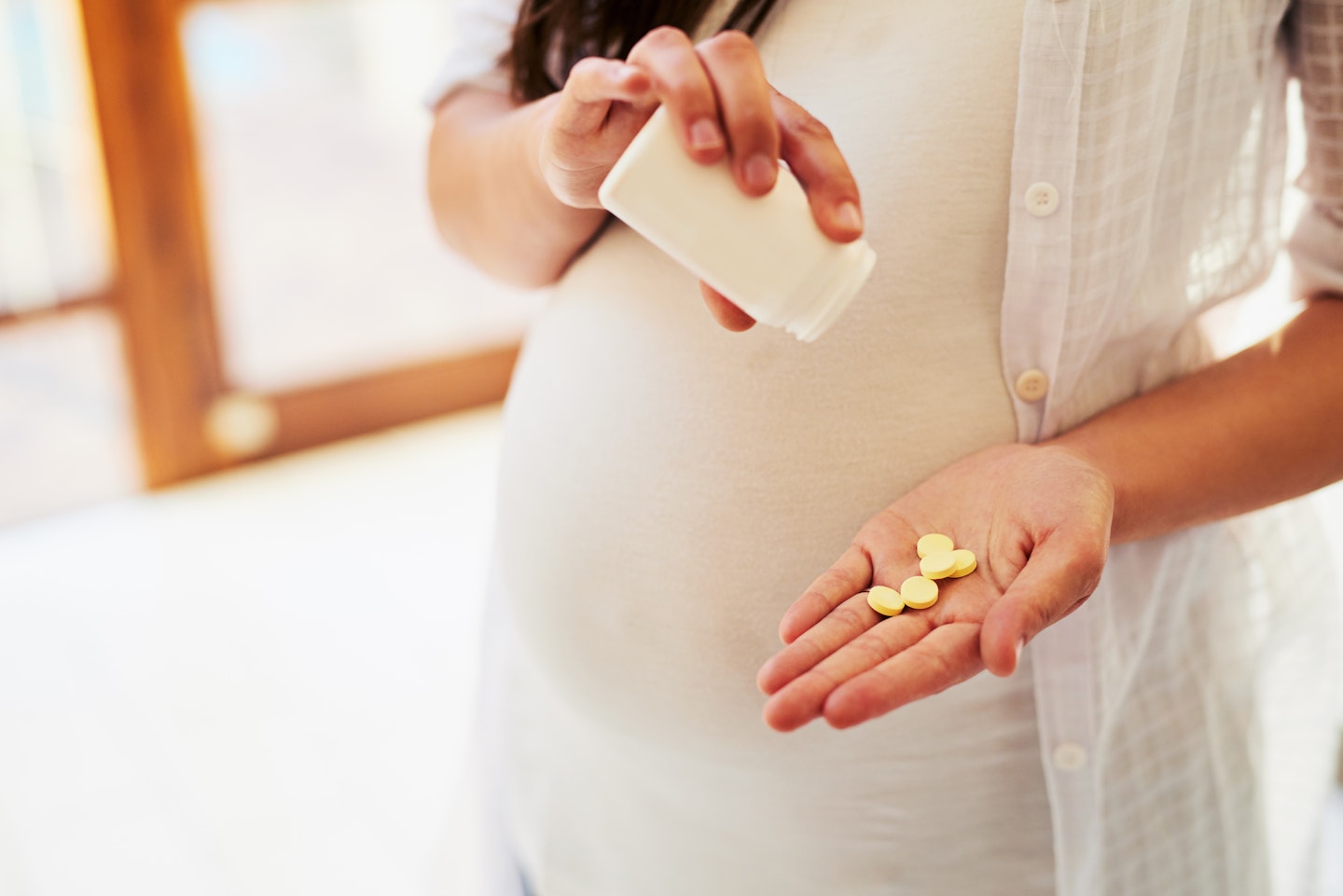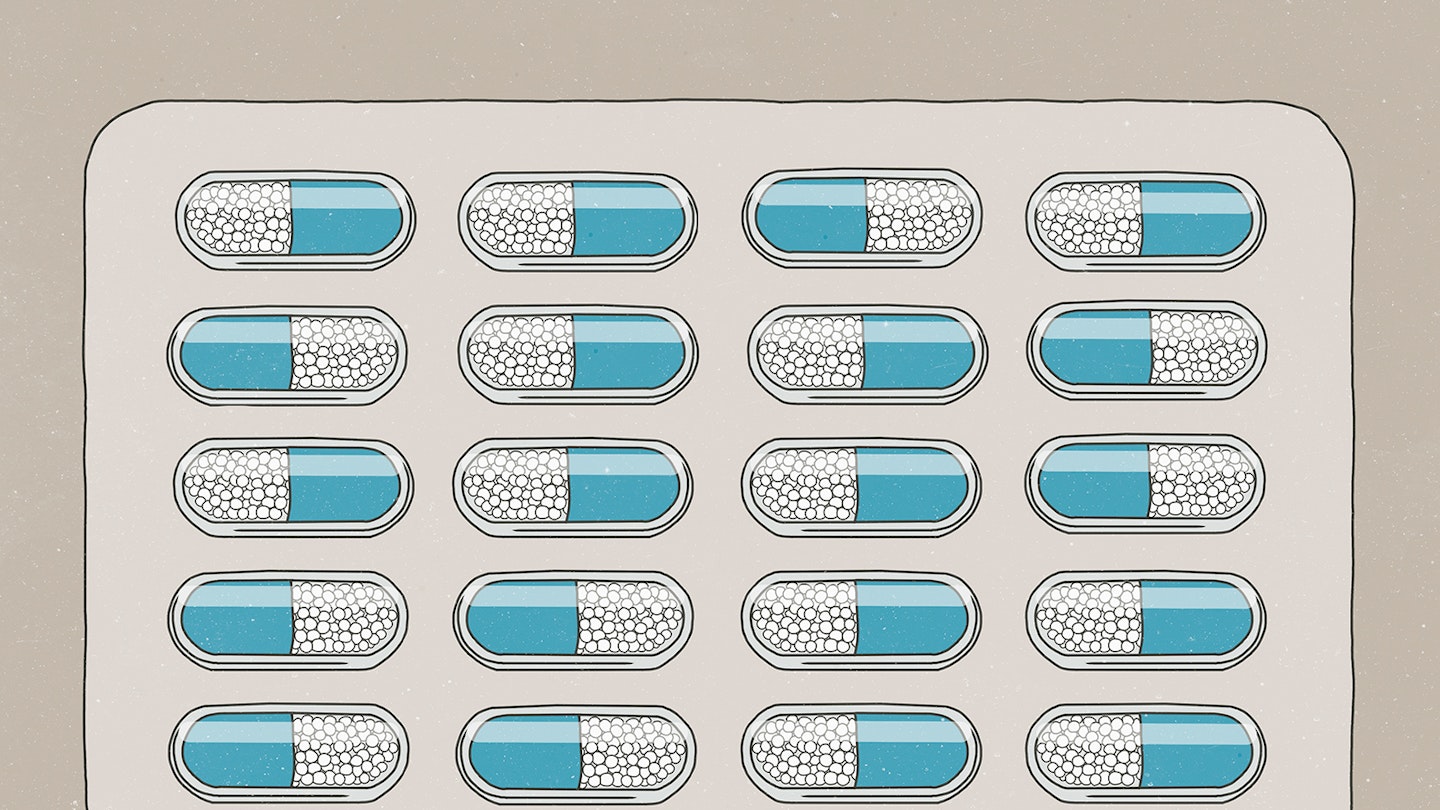When I found out I was expecting my first baby, I panicked. Not just about becoming a mother for the first time, or about how my partner - who wasn’t ready for children - was going to react, but because I knew I was going to keep my baby, and I knew it might mean I would have to come off of my mental health medication.
I have diagnosed bipolar disorder, and over the past four years, I have been on medication to help my symptoms - including mood stabilisers, antidepressants and antipsychotics.
Although I know many people have varied views on medication, even when not pregnant, it has been a lifesaver for me.
Before I was medicated, I was a living nightmare. Living with undiagnosed bipolar disorder absolutely sucks. My moods would constantly fluctuate, I would act out, I couldn’t control my temper, my emotions were all over the place. I spent every other night breaking down, and I had no real sense of who I was.

I didn’t even hesitate when I first saw a psychiatrist and he diagnosed me with bipolar, and asked whether I’d like to try some medication. My life and my moods were so erratic - going from feeling on top of the world, invincible, unstoppable - to feeling like I didn’t want to be here anymore - that the idea of taking a pill to help me balance it all out seemed amazing.
It took me a while to find the correct medication. It was trial and error until I found something that worked. Something that didn’t give me horrible side effects, stop me sleeping, or make me feel completely numb. Over time, more medication was introduced until I found the perfect balance. Ever since, my mental health has been pretty stable. There have been episodes - because that’s what happens with bipolar disorder - but they’ve been manageable and haven’t lasted very long.
I’ve also chilled out a lot, I handle my emotions better and I no longer have a temper. Of course, I can’t attribute all of these changes to medication as I have also had therapy and see a psychiatrist, but I don’t think I would cope without my medication.
And so it scared me when I got pregnant, and joined pregnancy groups reading posts from other women who had come off of their mental health medication and were struggling. I couldn’t imagine going back to how I was unmedicated while being pregnant and going through all the hormonal changes that come with it. I knew I wouldn’t cope. I spent a few weeks feeling panicked and researching different statistics and studies, which often came up inconclusive as one study would contradict another.
I ended up having an appointment with the antenatal mental health team booked when I was 10 weeks pregnant, and so I decided to stay on my medication at least until then, because I knew it was absolutely dangerous to go cold turkey, to quit my medication without a doctor’s advice, and I didn’t want to experience any withdrawals without support.
When I finally went to the antenatal appointment, and spoke about the medication, I was told that I could stay on it if I liked - although some women do decide to come off it completely. I learned that the medication is largely risk-free and that the risks are super minute.
I know there’s always that chance of being ‘one in 1000’, but I also found out that the withdrawal effects of coming off such serious medication could be bad for the baby, and my own wellbeing, which again could be bad for my stress levels and mental state during my pregnancy. For me, the benefits outweigh the risks.
And so, I’ve decided to stay on my medication. Yes, I want to protect my baby as much as possible, but my mental wellbeing is so important, and it’s important that my mental health is as healthy as possible to get through this pregnancy.

I understand some women will disagree - and I understand why some people may choose to quit, but for me, medication changed my life, and I just can’t risk going back to the place I was in all those years ago.
I have had the odd comment from mums on pregnancy groups, who tell me I shouldn’t be taking the medication, that it’s bad for the baby. But I have been assured by mental health professionals that it is absolutely okay and they recommend I stay on it to keep myself happy - and I’m going to choose to trust them.
I think it’s important that mums don’t worry so much about what other women think, and remember that it is your pregnancy. Nobody else’s. If medication works for you, it’s safe to take and you want to continue it to look after your wellbeing, please don’t feel ashamed or guilty about that just because someone else doesn’t agree.
As long as you have professional medical approval and a team to look out for you and monitor your medication, there is nothing bad about taking it.
Remember that doing what’s best for you is also doing what is best for the baby - and that is what is most important.
Now read:
What’s the truth about taking antidepressants during pregnancy?
I’m a first time mum needing extra mental health support - and I’m not ashamed
